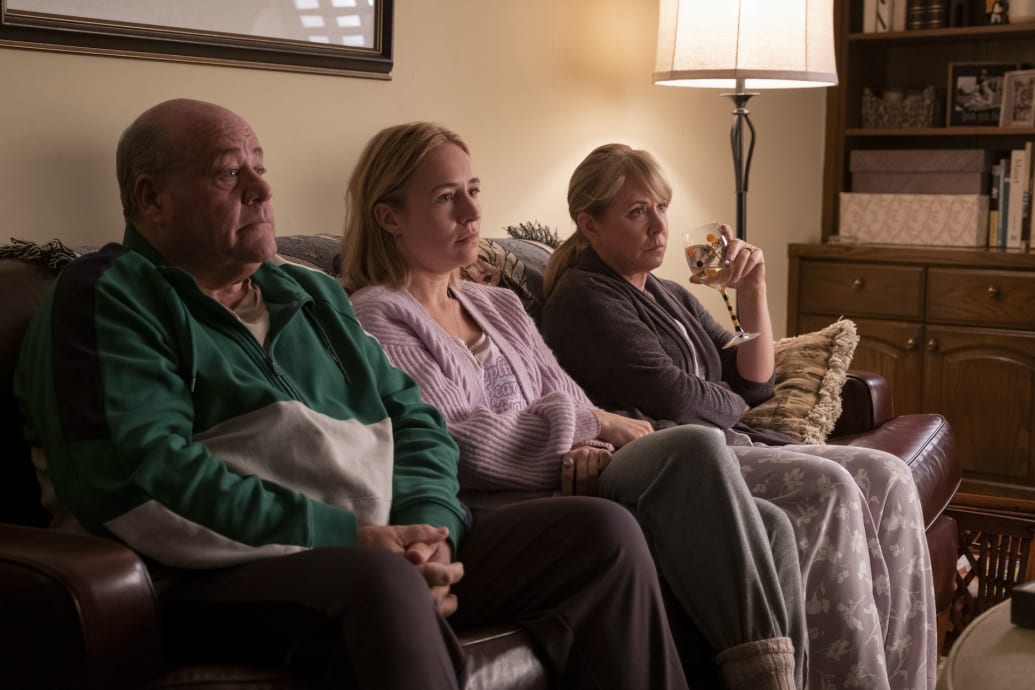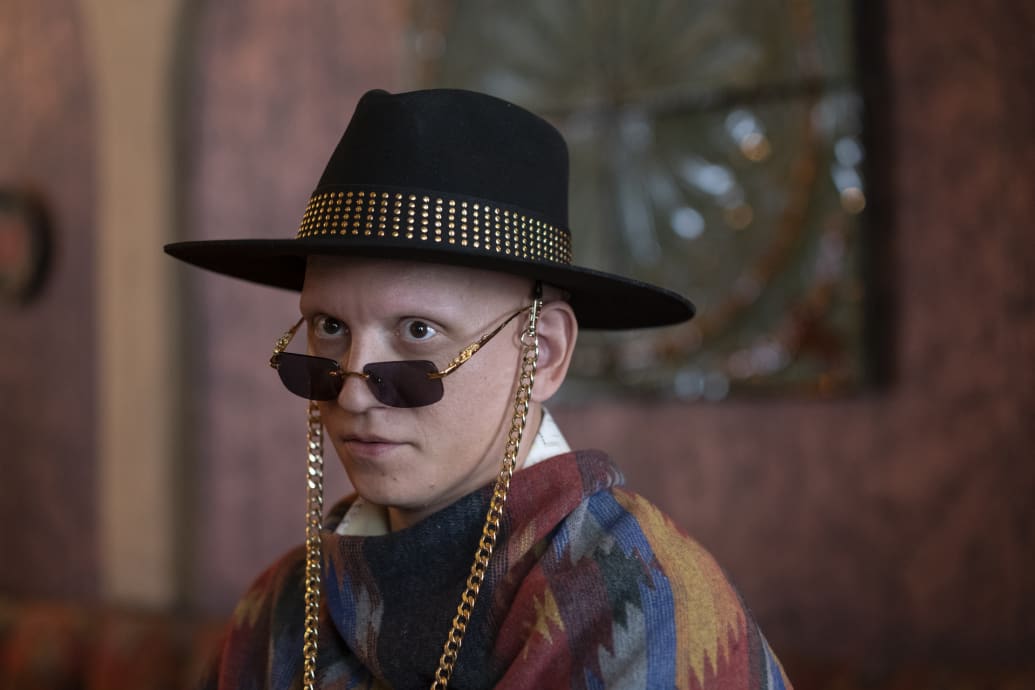The walls are about to land on Barry Berkman (Bill Hader), but things finally turn for the beleaguered hitman – at which point the fourth and final season of the series begins. barry indeed, it becomes unexpectedly risky. Equally hopeless and absurd, Hader’s serious-comic HBO gem returning April 16 remains a one-of-a-kind mix of introverted character work, LA crime adventure, and caustic showbiz satire.
On his final outing, his characters continue to manipulate and betray each other (and themselves) until they get tangled in painful knots. A show that, like its tortured protagonist, exists in a constant state of physical, emotional, and psychological violence, and where there is seemingly – and comically and bleakly – no escape.
Barry certainly couldn’t escape his brutal past. Acting long ago didn’t set her free, so did murdering detective Janice (Paula Newsome) and trying to direct her teacher – and her boyfriend – Gene Cousineau (Henry Winkler), who discovered that Barry was responsible for Janice’s murder.
This latest failure peaked at the end of season three when Gene partnered with Janice’s imposing father Jim (Robert Wisdom) to lure Barry into a trap that had him behind bars. We find this sailor-turned-murderer now in prison, alone, unstable and besieged by hallucinations that appeal to his frayed mind and sense of self.
On Slammer, Barry is a local celebrity for security personnel because he was on TV, which means their “I’m sure you’re not a bad guy!” But Barry harbors no such illusions and makes it clear when confronting a guard in the first episode, confirming that brutality is the only real language he speaks, whether he’s punishing others or himself. No one else is taking kindly to Barry at this late period.
Shocked by the revelation (at least while at her company) that Barry committed murder, Sally (Sarah Goldberg) cuts ties with her ex-boyfriend and flees to her parents’ home in Joplin, Missouri, where she finds little comfort and peace. . Yet naturally he does not want to do anything with his former student; Answering a call from the intruder – while Barry tells her “Are you mad at me? Because I love you” – simply, “Hey Barry? Got it.”
Even freaky Chechen mob boss NoHo Hank (Anthony Carrigan), who wants to break Barry out of jail, rethinks it at the behest of his boyfriend, Cristobal (Michael Irby), given that they live a quiet and safe life in the Santa Fe desert. NoHo Hank isn’t going to completely give up on his murderous friend early in season four, so he’ll have a cameo from none other than Oscar-winning director Guillermo Del Toro, it’s all the more hilarious that he’s so cunningly set up.
Barry’s more pressing concerns, though, include Fuches (a superior Stephen Root), who is locked in the same prison and fears Barry wants to avenge his latest hypocrisy. Therefore, Fuches chooses to make a deal with the FBI to trade information in exchange for a new life in witness protection – which, according to the series’ formula, not only does not go as planned, but is turned upside down. impossible to predict.
There are lots of surprises scattered throughout barrythe closing run, including a daring midpoint return that sent him frantically towards the conclusion. As critics picked up only seven of the season’s eight installments, it’s impossible to make a definitive statement about the summary of the saga. Still, Hader’s certainty in editing his material makes the idea of stumbling at the last second almost unthinkable. Few series are so confidently unique, and this is especially true in the present. Directing all eight episodes, Hader solidifies his status as TV’s most successful director; It is notable for creating extended shots, shifting perspectives and complex tracking shots, use of camera movements and choreography, white knuckle tension, and more importantly, hilarious visual humor.

barry It is the rare television effort that is aesthetically creative and ingenious and, moreover, naturally combines its form with its content. Whether it’s a hilarious rotating camera piece featuring two presenters around a Dave and Buster’s private room table, a bravura scene focusing on characters escaping trouble in a car on a winding hillside driveway, or a mournful prison conversation (via) the phone and the window. ), with the different soundscapes of his POVs, Hader’s technique is a magnificent and vital component of the overarching tone of the action. The mood itself is just as startling: a turbulent mix of anger, shame, guilt, hatred, helplessness, need, and self-loathing, expressed through a story about the boundaries between reality and performance, both on and off the screen.
Like barry it went from a sharp black comedy to an amusingly tortured comedy. A whirlwind of misery and madness, Hader’s turn grew uglier, more volatile and lively wire, as did those in the supporting cast who arguably did their best work in these final episodes. Winkler, Root, and Goldberg are particularly outstanding, the latter conveying Sally’s complex performance challenges with a force that no one expected at the start of the series. If Winkler, Root, and Carrigan get the most laughs, Goldberg steals most of the limelight by capturing the suffering, anger, and despair of her character with a kind of big female virtuosity that Sally herself would envy.

In the fifth installment of the watershed, barry He explores thoroughly and breathtakingly the questions that have fed him from the very beginning. What is the relationship between how you act and who you are (think of you)? At what point does doing evil permanently prevent you from being a good person? Is repentance possible, and if so, in what forms? Is permanent change possible, or are our identities (and destinies) fundamentally unchangeable?
For Barry, the desire to transcend what he’s done and change the person he has become is a quest that constantly leads him to where he most wanted to leave behind, and then to an ever-growing trail of death. With a peculiar balance of gravity and ridiculousness, Hader wrestles with such issues to the bitter, black-and-blue ending, turning the HBO hit into the TV equivalent of a grotesquely hilarious, gaping wound.
Did you like this review? Sign up to receive weekly See. Skip newsletter Every Tuesday and find out which new shows and movies are worth watching and which are not.